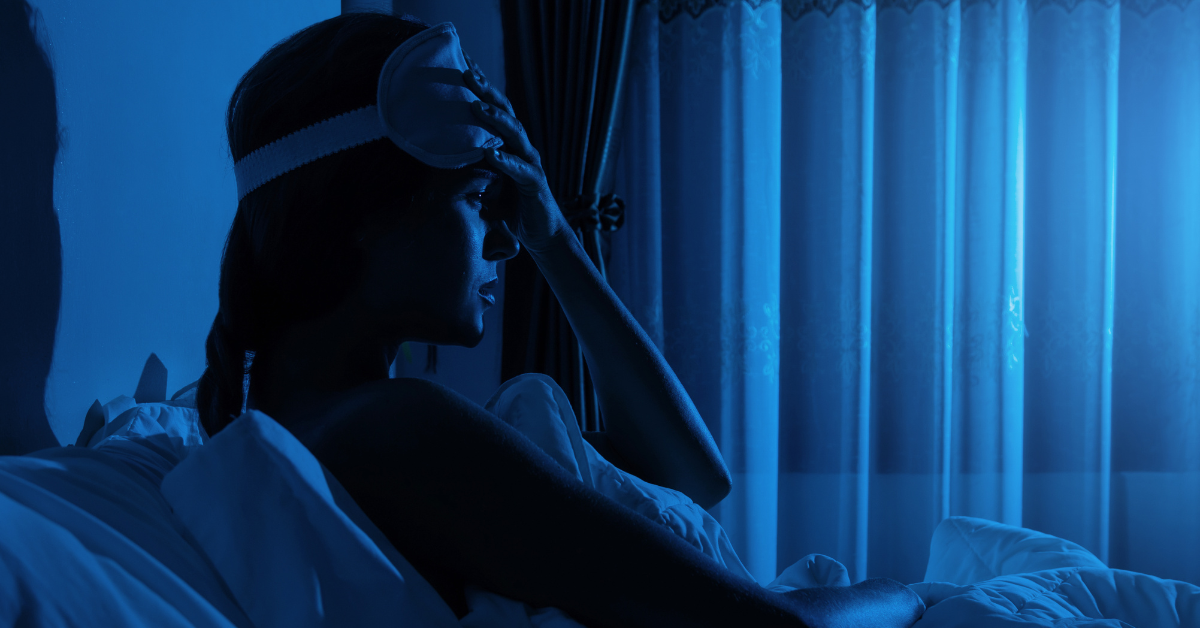
The Silent Night Struggle: Exploring Perimenopause/Menopause and Insomnia By Dr. Rachelle Viinberg, ND
By Dr. Rachelle Viinberg, ND
Ah, the elusive beauty of a good night's sleep! We often take it for granted until it starts slipping through our fingers, leaving us frustrated and fatigued. As women approach perimenopause and menopause, hormonal changes can wreak havoc on their sleep patterns, leading to insomnia. In this blog post, we will delve into the relationship between perimenopause/menopause and insomnia, shed light on some supplements that may help, and explore the potential benefits of bio-identical progesterone.
Understanding the Connection
Perimenopause and menopause mark significant transitions in a woman's life, as the ovaries gradually reduce their production of estrogen and progesterone. These hormonal fluctuations can disrupt the delicate balance necessary for a good night's sleep, leading to insomnia and related issues such as difficulty falling asleep, staying asleep, or experiencing poor-quality sleep.
Supplements Considerations
In addition to good sleep hygiene, exercise, and stress management, there are several other options to help support sleep perimenopause and menopause:
- Melatonin: This hormone plays a vital role in regulating sleep patterns. Supplementing with melatonin may help restore your body's natural sleep-wake cycle, making it easier to fall asleep and stay asleep.
- Magnesium: Often referred to as nature's tranquilizer, magnesium promotes relaxation and may help improve sleep quality. It can be taken as a supplement or obtained through foods such as leafy greens, nuts, and seeds.
- Valerian Root: It has long been used as a natural remedy for sleep disorders. The sedative properties can assist in reducing sleep latency and improving overall sleep quality.
- Black Cohosh: A herb commonly used to alleviate menopausal symptoms. Some women have reported improvements in sleep quality after taking black cohosh supplements, although more research is needed to establish a direct link.
- 5-HTP: As a precursor to serotonin, 5-HTP may help regulate mood and sleep patterns. It is believed to promote the production of both serotonin and melatonin, aiding in the management of insomnia.
Bio-Identical Progesterone and Insomnia
When nothing seems to work, fortunately, there’s another option. Progesterone in particular has a calming effect on the central nervous system, helping to reduce anxiety and promote better sleep.
Unlike synthetic progestins, which can have adverse side effects, bio-identical progesterone is structurally identical to the hormone naturally produced by the body. It can be administered in various forms, such as creams, capsules, or suppositories, but should only be used under the guidance of a healthcare professional.
It's important to note that bio-identical progesterone may not be suitable for everyone, and its use should be carefully considered after discussing the potential benefits and risks with a healthcare provider.
Conclusion
Perimenopause and menopause can disrupt sleep patterns, causing frustrating nights filled with tossing and turning. However, there are strategies and supplements that may help alleviate insomnia symptoms during this transitional phase of life.
Melatonin, magnesium, valerian root, black cohosh, and 5-HTP are among the supplements that women can explore, but always consult with a healthcare professional before adding them to your regimen.
For those seeking additional relief, bio-identical progesterone may offer a potential solution. Its calming effects on the central nervous system can address anxiety and support restful sleep. However, as with any hormonal therapy, it is crucial to consult a healthcare professional who can fully assess if you are a good candidate for this therapy.
Holistic guidance
For further immune support, Dr. Kristy Lewis, ND and associates are happy to guide you in your health goals. Lifestyle, nutrition, stress management, a detailed blood work analysis, and targeted supplements/hormone replacement can help you attain your best self. Learn more: https://drkristylewis.ca/services
Disclaimer: This information is for educational purposes only, and does not substitute professional medical advice or consultations with healthcare professionals.
